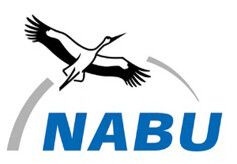For a number of years, we have cooperated with the German environmental organisation, NABU.
The collaboration has resulted in a continuous development of our green initiatives.

NABU advises Scandlines regarding measures on their sustainability journey. Apart from ship operation there are also activities in progress in other fields e.g. land management in ports and electricity supply.
NABU also advises Scandlines regarding the transition of its ferries towards their zero direct emissions vision.
The goal for both parties is zero direct emissions ferries within a few years.
Zero direct emissions is only a few years away
The ferries' energy need is high, and the charging must be possible within the 15 minutes in the harbours.
The independent analysis institute DNV has confirmed that our project is feasible within a few years.
The project is in progress
We are in close dialogue with collaboration partners within the fields of supplying, storing and transportation of energy. Moreover, we are in good contact with politicians and other relevant stakeholders.
We expect that excess capacities from local wind energy suppliers can provide the major part of the requested energy.
The goal for both Nabu and Scandlines is zero direct emissions ferries within a few years.
Read more about our green agenda
Read all-
![]()
A sustainable future
To broaden our Green Agenda, we have developed commitments across the entire organisation in support of 13 out of 17 United Nations’ Sustainable Development Goals.
-
![Hybrid Ferry Berlin]()
A fleet of hybrid ferries
The hybrid system on ferries is similar to that of hybrid cars, where petrol or diesel is combined with electricity.
-
![SH Thruster]()
Noise-reducing thrusters
One of the steps towards our zero emission strategy is the exchange of all thrusters – the ships’ propulsion systems – on Scandlines’ four hybrid ferries on the route between Puttgarden in Germany and Rødby in Denmark.
-
![Food In Small Portions]()
Sustainability in action
We reduce food waste by serving individual portions made to order, putting smaller amounts of food on the buffet at the time and by having less dishes from which to choose.
-
![]()
Zero direct emissions-freight ferry
Scandlines has ordered a new zero direct emissions-freight ferry for the Puttgarden-Rødby route. The ferry will be inserted in 2025 and will launch the next generation of ferries on the route.
-
![CPH Rotor Warnemuende]()
Powered by the wind
With a rotor sail, the hybrid ferries M/V Copenhagen and M/V Berlin reduces CO2 emission.
-
![Færgen Schleswig Holstein sejler mod Puttgarden havn]()
Reduction of energy consumption
Our current focus is on reducing our ferries' energy consumption per crossing. We are investing in energy efficiency and operational adjustments that lead to energy savings.
-
![]()
Electrification of the ferries
Scandlines is now taking the next big step on the green journey, converting two of the four passenger ferries operating the Puttgarden-Rødby route into plug-in ferries.







